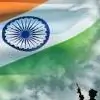Lesson # 1:
Don't make a decision in haste. Unintended consequences of hasty actions can cause troubles for generations to come !
*Shantanu with his marriage to Ganga.
*Bhishma and his vow of celibacy.
*Bhishma's abduction did not benefit the family. Amba became a lifelong enemy, Ambaika and Ambalika failed to bear sons from Vichitravirya. Children they bore from Vyasa were unfit for the throne due to blindness and ill health.
*Satyavati's insistence that Vyasa sires children on the Kashi princesses there and than - rather than waiting as advised.
Lesson # 2:
Without forethought, "Grand Gestures" are pointless.
*Yudhisthir's decision to play dice - twice - like an Emperor was a total flop.
*Yudhisthir's magnanimous acts of "forgiveness" towards Duryodhan and Jayadratha proved to be fatal for them.
*Karna's donation of his only advantage in battle - his skin - proved him to be great donor, but it was fatal to him.
Lesson # 3:
Pointless promises / vows !
(Where do I begin !!!! I should have put this as first and foremost lesson of MB!!!)
*Shantanu's promise to Ganga cost him seven sons.
*Bhishma's vow of celibacy annihilated his father's gene pool.
*Parshuram's vow to only teach Brahmins or Drona's vow to teach only princes was manifestly unfair to countless deserving students.
*Drupad's promise to share his kingdom with Drona caused animosity amongst friends.
*Yudhisthir's vain vow to "play the dice with anyone if invited".
*Karna's vow to be a matchless donor proved fatal.
*Bhishma's vow not to fight Shikhandi proved fatal.
*Shailya's foolish vow to support Kauravs with his entire army just because he "promised" to fulfil the wish of his "host".
*Arjun's vow to kill Jayadratha or die was so foolish, even Krushna despaired !
*Yudhisthir's promise to Duryodhan that whoever won the last duel of the battle would be declared the overall winner of the war was a folly on a monumental scale.
Lesson # 4:
Be careful not to ruin someone else's life when trying to better the lives of your nearest and dearest.
*Bhishma brought the Kashi princesses to please his step-brother without thinking how the princesses would feel.
*Drona crippled Eklavya to make sure Arjun (and Ashwasthama) had no equal.
*Dhritarastra constantly hurt Pandavas to please Duryodhana.
Lesson # 5:
Karmic retribution of hurting even the weakest and meekest is terrible for the mighty to behold !
*Amba was abandoned by her family, friends, lover and even the Gods. Yet, in time she sought her vengeance and brought down the mighty Bhishma.
*Drona was a pauper and Drupada thought nothing of slighting him. Panchala was divided and seeds of war and vengeance sowed when King Drupada thought himself to be too mighty to befriend Drona the pauper.
*Kaurav princes fatally miscalculated when they thought it would be easy to insult Panchali, a mere woman, as a safe way to hurt the Pandavas from a distance.
*Gandhari's lament, no matter how unreasonable, caused the Yadava kul to be terribly crushed and greatly reduced.
*Burning of Khandav-van was a genocide on a massive scale. It was done to establish a successful kingdom, but its consequences were suffered by 3 generations of Kurus.
Lesson # 6:
Addiction to wine and gambling is totally ruinous
*Nala was a great king, yet all his greatness came to naught because of his addiction to gambling.
*Yudhisthira was Dharma personified, yet, he lost everything due to his addiction to gambling.
Lesson # 7:
Your Silence and patience can be misinterpreted. Know when its best to speak or to be silent.
*Pandava, Kunti and Vidur knew who poisoned Bhima. Yet, for sake of peace, they stayed silent. Had the serpent's head been crushed earlier, had Duryodhan been punished earlier, maybe he would have learned his lesson earlier and not been encouraged to carry out new plots. Silence by the elders and his enemy, encouraged him to ever bolder attempts at assassination.
*Yudhisthir's silence and compliance to the will of Dhritarastra / Kuru elders was seen as his weakness and hence Pandavas were regularly maltreated.
*Four younger brothers followed Yudhisthir even when he made the monumental mistake of playing dice against Shakuni.
* Silence by various kings and royals during the shameful attempt at disrobing Draupadi was seen as their tacit approval by Kauravas.
Lesson # 8:
Careful which side you are supporting. Might is not always right and even the good can end up supporting evil if they are not vigilant.
*Kuru elders supported the incumbent king and his sons without questioning the merit of such support.
*Durvasa followed Duryodhan's lead without questioning his motives.
*Shailya accidently ended up supporting and even leading Kaurav armies. Had he been vigilant, he could have avoided the honey trap of being flattered to join the "wrong side" !
Lesson # 9:
Friendship is a double edged sword. Used correctly, it can lead you to success, otherwise, catastrophe.
*Drona and Drupada's friendship became bitter and twisted, splitting an ancient kingdom and sowed the seeds of discord.
*Karna and Duryodhan's friendship was so strong, it could not be cleaved even by Krushna's inducements or Kunti's sentimental arguments.
Yet, Karna's desire for "vengeance-against-Pandavas" drove his friendship with Duryodhan and so it ended up benefiting no one.
*Krishna and Arjun's friendship flourished and delivered the spiritual gem in the form of SMB Gita.
Lesson # 10:
Don't compromise, but at the same time, don't be too rigid, recognise ground realities and make course corrections as needed.
*Seeing as Kuru clan was about to become extinct, Satyavati tried to get Bhishma to break or bend his vow of celibacy. When that failed, she asked her son Vyasa to sire children to keep the clan name alive.
*Usually, elder brother gets married before the younger one. But, when Hidamba fell in love with Bhima, Kunti & Yudhisthir gave their permission for the second brother to get married before the first one. In matter of love, how can you dictate or be too prescriptive ?
*Polyandry was rare to the point of being unacceptable in most of North India. Yet, seeing their mother had inadvertently told to them share Drupadi, the Pandavas did as commanded without too much fuss. Arjun especially !
*Krishna walked away from a battle against Kalyavan to spare further damage to Mathura's economic and social life. At the risk of being branded a "coward", He carried out a "tactical withdrawl" to Dwarika rather than stick to a pointless policy of war for war sake.
*Shri Krishna vowed not to fight in the Kuru battle. Both sides were equally dear to him. Yet, when Arjun's life, and the safety of Pandava army was in jeopardy, He rushed to attack Bhishma.
*Draupadi wanted the murderer of her family killed. But seeing as it was Guru-putra, she compromised and was contented that his "mani" was taken from him instead.
Lesson # 11:
United we stand, divided we fall !
*Pandavas won the great war due to their unity. There were plenty of points that divided them (game of dice, death of Bhurishrava, Abhimanu, Drona etc), but, in principle, they remained united. Shri Krushna's life mission seemed to be to unite the Pandava side and keep them together till the bitter end.
*Kauravas were divided and un-reconciled about their deep divisions till the very end. Even before the battle, their two star fighters - Bhishma and Karna had promised not to fight while the other lived !
*How can there be victory for a team where the leader is constantly berating his own star players ? Duryodhan was constantly doubting the goodwill of his main warriors and was always complaining about Bhishma, Drona, Krupacharya, Ashwasthama and Shalva, urging them to fight harder not by positive reinforcement, but complaints that they were too soft on Pandavas !
*Powerful Yadava clans fell apart due to dissention amongst themselves. They fought over grievances, past and present and some things that had nothing to do with them at all !
Lesson # 12:
If you must fight - make sure your enemy is annihilated. Enemy that lives on after a war is more deadly than before.
*Kauravas missed their chance of killing Bhima while he was young and without political clout. After their first attempt to poison him, Pandavas never trusted Kauravas ever again.
*After Varnavat, Kauravas lost all sympathy for their claim to the throne and Pandavas came home with powerful allies in the form of Panchals.
*Takshat escaped the burning of Khandav van and he took out his frustration on Pandava's only grandson.
*Having caught Jayadrath kidnapping Drupadi red handed, Pandavas should have killed him. Leaving him alive meant there was one more entrenched enemy to fight in the great war.
*Leaving Duryodhan alive, after the final dual with Bhima, cost Pandavas their sons and relatives. Eventhough at death's door, Duryodhan ordered Ashwashthama to carry on the war and kill as many as he could.
Lesson # 13:
Too little, too late.
*Lots of people had the chance to step in and avert the war. They didn't - so why blame GOD / destiny etc ?
*Dhrutarastra, Gandhari, Krupacharya, Drona, Pitamaha Bhishma et all had the opportunity to cut the rot that threatened to destroy the Kuru clan. Till the last minute, they did nothing but appease Duryodhan.
*Kunti came too late to acknowledge Karna. After his death, what good did it do to anyone to say "he was my son" ?
*What good did it do anyone to know that Yudhishthir had a persistent complaint about Drupadi and his brothers after their death ? Had he spoken earlier, some of his doubts could have been cleared and he might have had less stressful life.
Lesson # 15:
Sometimes, winners loose and losers win !
*Kauravas won the dice games only to loose their lives.
*Pandavas won the war only to find that all those they loved were dead.


























